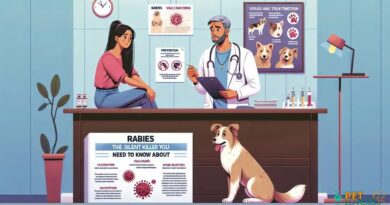What is dog diseases
What is Dog Diseases?
Dog diseases refer to a variety of health issues that can affect dogs, ranging from minor ailments to serious conditions that can threaten their lives. Understanding these diseases is crucial for dog owners to ensure their pets lead healthy and happy lives. The term encompasses a wide range of conditions, including infectious diseases, genetic disorders, and environmental health issues.
Types of Dog Diseases
There are several categories of dog diseases, each with its own set of symptoms and treatments. Infectious diseases, such as parvovirus and kennel cough, are caused by pathogens that can spread between dogs. Genetic disorders, like hip dysplasia and certain types of cancer, are inherited and can affect specific breeds more than others. Environmental diseases, such as allergies and heatstroke, arise from external factors and can often be prevented with proper care.
Common Infectious Diseases in Dogs
Infectious diseases are a significant concern for dog owners. Canine parvovirus is a highly contagious virus that can lead to severe gastrointestinal issues and is often fatal if not treated promptly. Another common disease is canine distemper, which affects the respiratory, gastrointestinal, and nervous systems. Vaccination is the best prevention method against these diseases, highlighting the importance of regular veterinary check-ups.
Genetic Disorders in Dogs
Genetic disorders can vary widely among different dog breeds. For instance, large breeds like German Shepherds are prone to hip dysplasia, a condition that affects the hip joint and can lead to arthritis. Similarly, certain breeds are predisposed to specific types of cancer, such as lymphoma in Golden Retrievers. Understanding these predispositions can help owners take proactive measures in their dog’s health care.
Environmental Health Issues
Environmental factors can also lead to various health issues in dogs. Allergies are common and can be triggered by food, pollen, or dust mites. Symptoms may include itching, swelling, and digestive problems. Heatstroke is another serious condition that can occur during hot weather, especially in brachycephalic breeds. Owners should be vigilant about their dog’s environment to prevent these issues.
Symptoms of Dog Diseases
Recognizing the symptoms of dog diseases is essential for early diagnosis and treatment. Common signs include lethargy, loss of appetite, vomiting, diarrhea, and unusual behavior. If a dog exhibits any of these symptoms, it is crucial to consult a veterinarian as soon as possible. Early intervention can often lead to better outcomes and a quicker recovery.
Preventing Dog Diseases
Preventative care is vital in keeping dogs healthy and free from diseases. Regular vaccinations, routine veterinary check-ups, and a balanced diet can significantly reduce the risk of many health issues. Additionally, maintaining a clean living environment and providing regular exercise can help prevent environmental diseases and promote overall well-being.
Treatment Options for Dog Diseases
Treatment for dog diseases varies depending on the condition and its severity. Infectious diseases may require hospitalization and intensive care, including intravenous fluids and medications. Genetic disorders often necessitate long-term management strategies, such as weight control and pain relief. Environmental issues may be treated with medications or lifestyle changes, emphasizing the importance of a tailored approach to each dog’s health needs.
The Importance of Regular Vet Visits
Regular veterinary visits are crucial for maintaining a dog’s health and preventing diseases. Vets can provide vaccinations, conduct health screenings, and offer advice on nutrition and exercise. These visits also allow for early detection of potential health issues, which can be critical in ensuring a long and healthy life for dogs.



